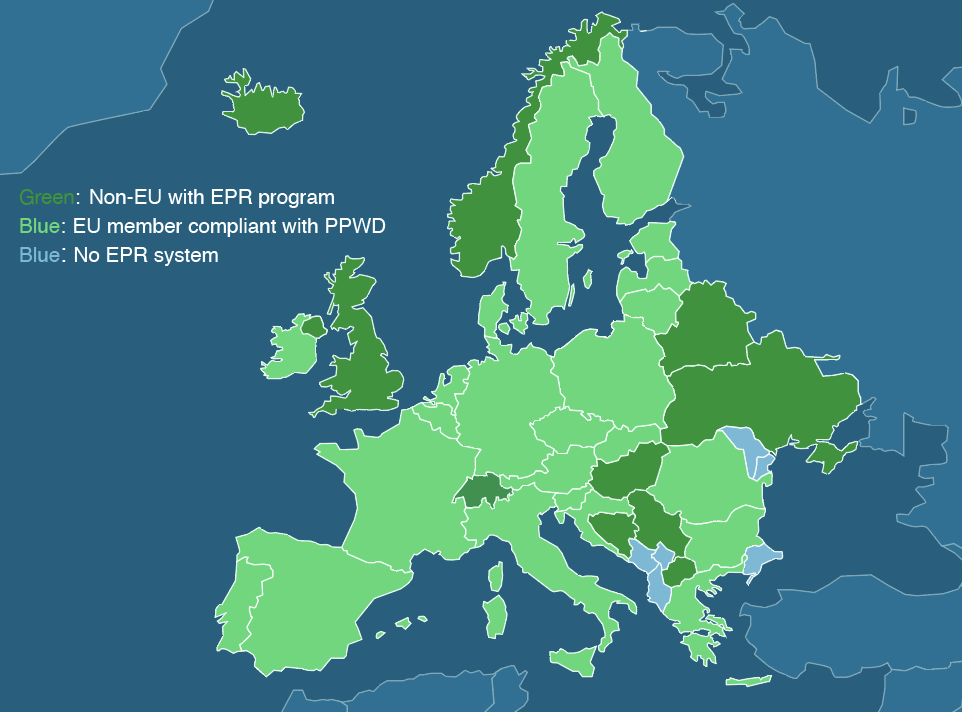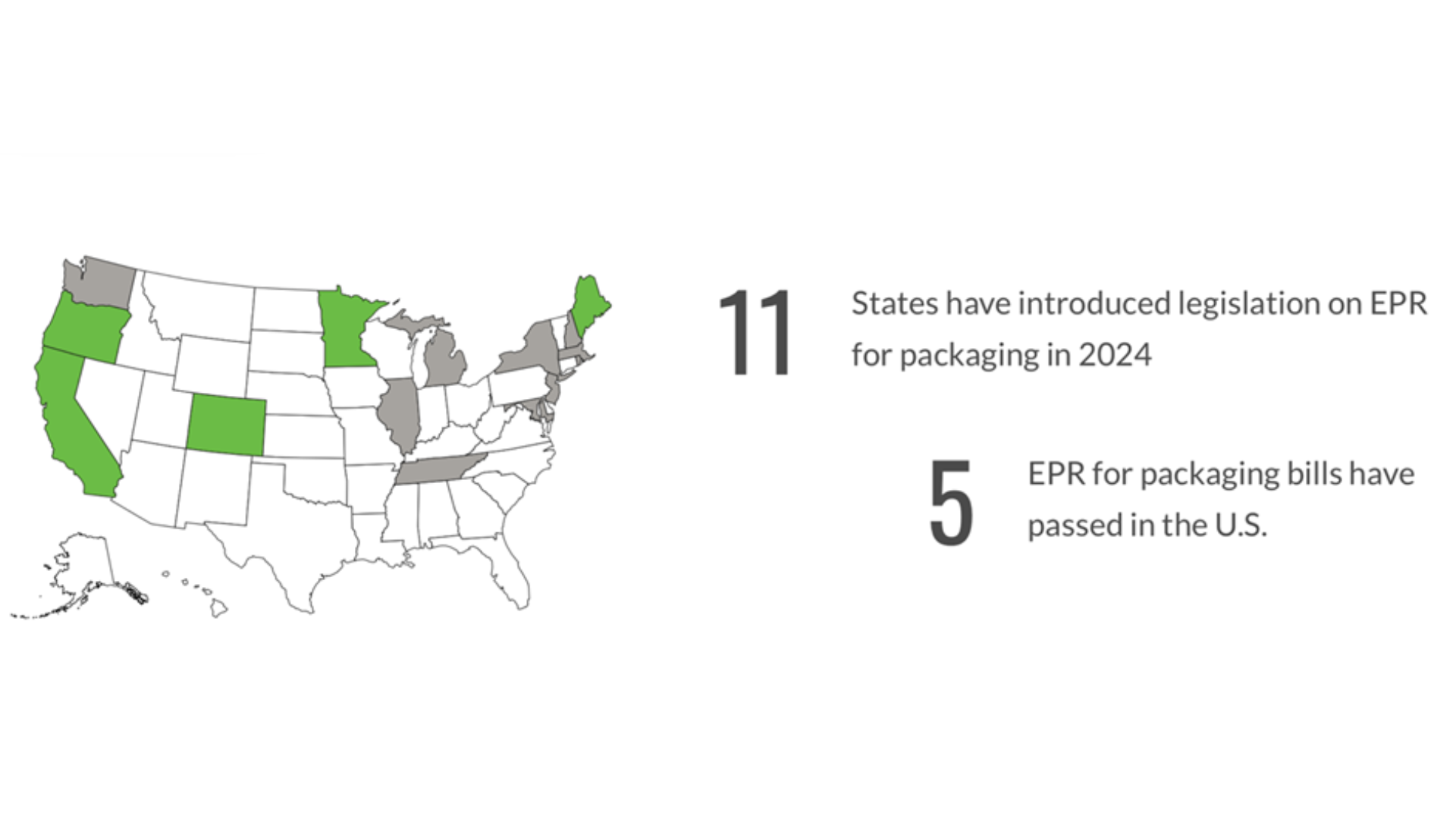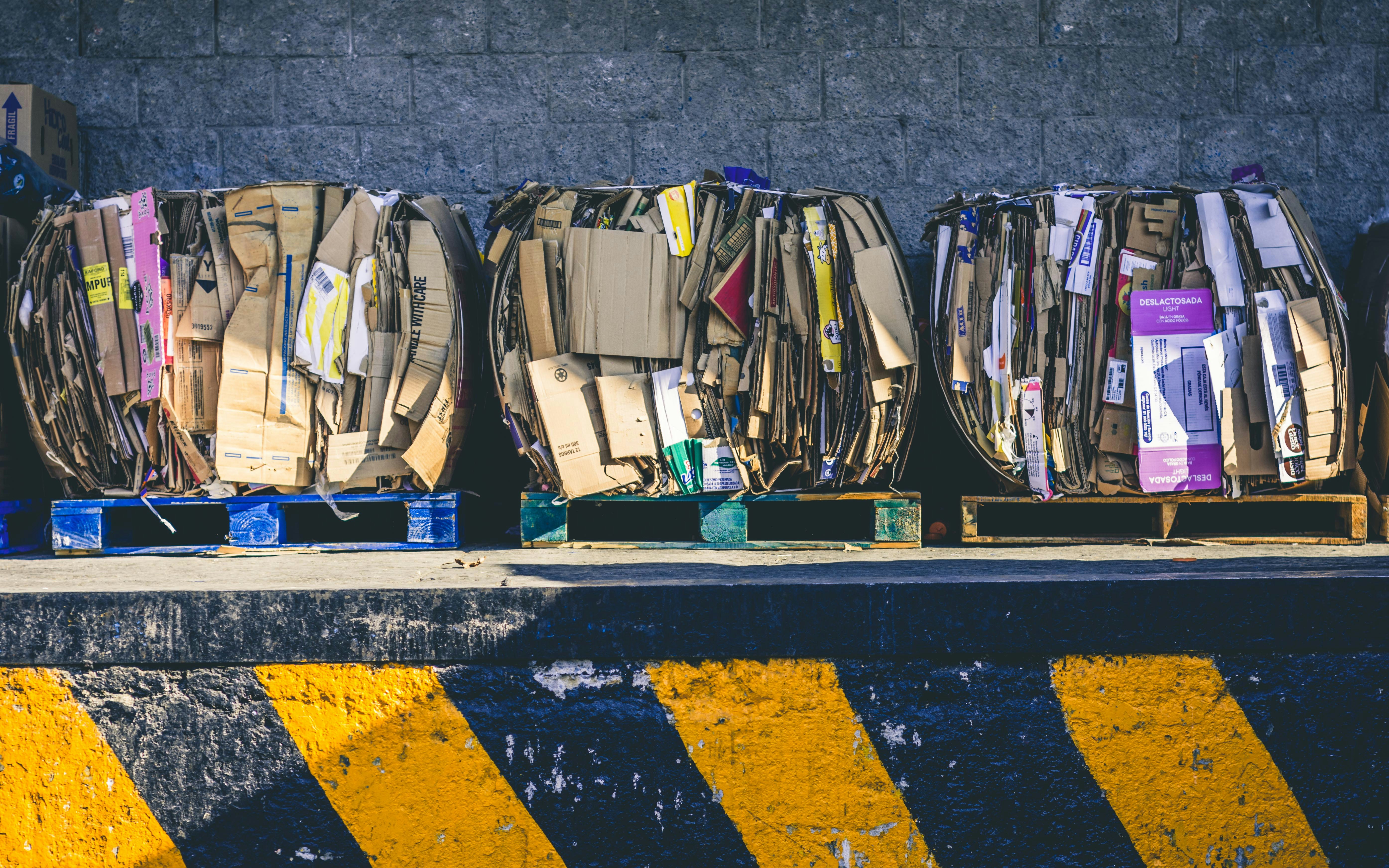- News & Insights
- 2025
- Key Packaging Policies and Regulations to Watch in 2025? Part 2/2
Key Packaging Policies and Regulations to Watch in 2025? Part 2/2
In part two, we turn our focus to the global evolution of Extended Producer Responsibility (EPR) laws. These regulations are reshaping the way companies manage packaging waste, placing greater accountability on producers to drive sustainability.
In part one of this series, we explored the European Union's Packaging and Packaging Waste Regulation (PPWR) and its implications for businesses (you can read it here). Now, in part two, we turn our focus to the global evolution of Extended Producer Responsibility (EPR) laws. These regulations are reshaping the way companies manage packaging waste, placing greater accountability on producers to drive sustainability.
EPR Schemes Shifting the Waste Burden Back to Producers
EPR is a waste management approach that makes producers responsible for the environmental impact of their products, including packaging. Non-compliance with EPR policies can result in fines, legal penalties, or restrictions on selling products in certain markets. These measures aim to ensure producers take their environmental responsibilities seriously and contribute to sustainable waste management1.
Europe’s Leading the Change
In recent years, the EU and the UK have made significant progress in advancing EPR policies, particularly for packaging. These changes update current rules for packaging and other waste and extend EPR requirements to include more producers and products. They also bring new compliance rules and financial responsibilities.
While EPR principles aim to harmonize environmental policies across EU member states, their implementation varies to reflect national contexts. The Packaging and Packaging Waste Directive requires all member states to establish EPR schemes for packaging by 2024, balancing unified goals with local adaptations2. As EPR expands, producers must adapt to significant changes in packaging management.

Source: Packaging School
As Extended Producer Responsibility (EPR) schemes expand, producers must adapt to significant changes in packaging management.
EPR laws making waves in the USA
As of 2024, five U.S. states have enacted active EPR or similar packaging laws: California, Colorado, Maine, Oregon and Minnesota. Among them, Oregon will take the lead as the first state to enforce EPR, starting in July 2025, with initial supply reports due by March 31, 20253.
In addition to these states, at least nine others are considering similar legislation, signaling that more packaging rules are likely to emerge as the legislative landscape evolves in 2025 and beyond4.
For producers, navigating these regulations will be complex, even within the five states with existing laws. Each state's approach varies significantly, with differences in:
- The definition of a "producer."
- Categories of materials covered.
- Specific exemptions.
- Implementation timelines5.
EPA calls for developing national EPR framework
The U.S. EPA recommends developing a national Extended Producer Responsibility (EPR) framework as part of its National Strategy to Prevent Plastic Pollution, with a goal to eliminate plastic waste entering the environment by 2040. While a federal EPR bill is not expected in the immediate future, momentum is building, and the EPA emphasizes the need for collaboration and harmonized policies, drawing from state-level and international examples to enhance recycling rates, reduce waste, and achieve circularity goals.
As the regulatory framework continues to expand, producers must stay agile to adapt to these diverse and evolving requirements.

Five US states have enacted active EPR or similar packaging laws and at least 11 others are considering similar legislation Source: Sustainable Packaging Coalition
APAC shifts towards mandatory EPR measures
Countries across the Indo-Pacific region are transitioning from voluntary to mandatory Extended Producer Responsibility (EPR) policies, reflecting a growing commitment to sustainable waste management. These policies require companies producing plastic products to bear the cost of their collection, sorting, and recycling.
Regional Developments
- Malaysia: Malaysia has incorporated Extended Producer Responsibility (EPR) into its Plastic Sustainability Roadmap (2012-2030) and Circular Economy Blueprint for Solid Waste (2025-2035). Recently, a roundtable with Norway, the UN, and other stakeholders emphasized advancing EPR implementation. While Malaysia's current EPR is voluntary, the Ministry of Investment, Trade, and Industry (MITI) plans to make it mandatory by 2026, signaling a strong commitment to enhancing EPR in the near future.
- Thailand: Beginning in 2025, Thailand will prohibit the import of all plastic waste as part of its initiative to combat plastic pollution6. In March 2024, the Thai Ministry of Natural Resources and Environment presented the Draft Sustainable Packaging Management Act, which will lay the foundation for implementing Extended Producer Responsibility (EPR) for packaging. A three-year timeline has been set to establish the required EPR infrastructure, including a centralized digital platform for producer registration7.
- Australia: Australia is considering a comprehensive reform to its packaging regulations with options that include:
- Strengthening existing frameworks.
- Imposing mandatory national standards.
- Introducing an EPR scheme.
Key proposals focus on banning problematic chemicals, mandating recycled content, and enhancing recyclability standards. Extended industry consultations are expected throughout the 20258. What’s more, National Packaging Targets aim for 100% of packaging to be reusable, recyclable, or compostable by 2025, with a focus on phasing out unnecessary single-use plastics.

Countries across the Indo-Pacific region are transitioning from voluntary to mandatory Extended Producer Responsibility (EPR) policies, reflecting a growing commitment to sustainable waste management.
The APAC region is undergoing significant regulatory changes to align with global sustainability goals. With countries revamping their packaging regulation and adopting stricter EPR frameworks, businesses must prepare for a future where sustainable packaging is not optional but mandatory.
Who can guide you through the changes?
At Nefab, we understand the challenges businesses face with new packaging regulations. As a trusted partner with deep expertise in sustainability, we have been closely following these changes and are ready to guide you through compliance.
From designing sustainable packaging to implementing reuse systems and conducting lifecycle assessments, Nefab can help your business adapt to the evolving standards and thrive in this new landscape.
We save resources in supply chains for a better tomorrow.
Want to learn more?
GET IN TOUCH
Contact us to learn more about our smart and sustainable solutions.
LEARN MORE
Sustainable Solutions
Engineered packaging for sustainable supply chains
GreenCalc
Nefab’s own certified calculator measures and quantifies financial and environmental savings in our solutions
Global Engineering Network
250 engineering experts in more than 30 locations


